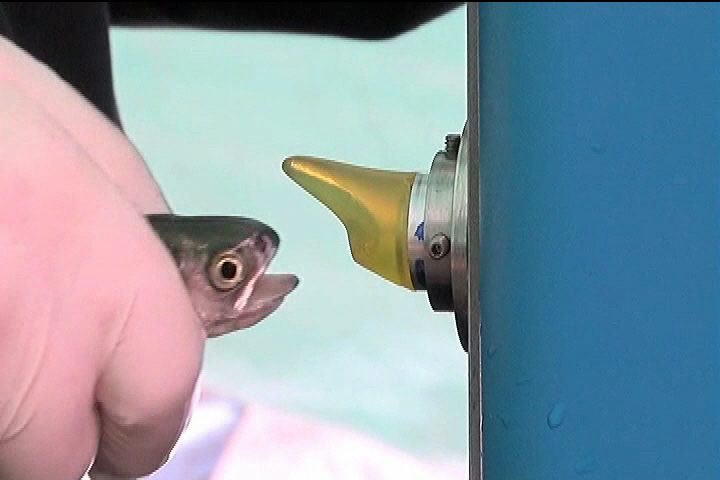Omega Pacific Hatchery near Port Alberni says its return rates are up to 25 times that of the DFO.
On the still snowy shores of Great Central Lake, west of Port Alberni, something very unique in the world of salmon enhancement is happening.
“For all the release groups we’re having at least 10 to 25 times greater marine survival than when you compare them to the S-0 releases,” said Omega Pacific Hatchery owner Carol Schmitt.
S-0 releases refers to what’s happening at federal hatcheries run by the Department of Fisheries and Oceans.
“We always said at worst we’d get 5% at best 10% (returns). And they’re getting 0.1, 0.2, 0.5% survival to adult, from juvenile release to adult,” added Schmitt.
That’s a huge difference when you have just a few dozen fish returning compared to hundreds of Omega Hatchery fish.
However, if you thought DFO would be excited about Omega’s success you’d be wrong.
Omega says it has received very little support or recognition of what it’s acheived.
“There’s lots of pots of funding that DFO has that we have applied to over the last two and a half years, probably a dozen applications and all the applications have been vetoed,” said Schmitt.
85,000 chinook salmon are being tagged at the hatchery this month before their release in April but the operation was in jeopardy just a few weeks ago.
Omega needed money for food and at the last minute the DFO came through with a tagging machine.
“They let us participate (in the trial) but now won’t provide us with any limited amount of the costs for feed or labour or anything like that,” Schmitt told CHEK News reporter Dean Stoltz who visited the hatchery Wednesday.
In a statement from the Department of Fisheries and Oceans, DFO says it “uses a variety of release strategies for salmon in its hatchery practices, generally trying to mimic the natural history of salmon as closely as possible.” And that “the rearing strategy being advance by Omega Pacific is not natural for the chinook populations on Vancouver Island and could negatively impact the natural lifecycle of wild salmon.”
But Omega disputes that and says what it does is even closer to what happens in the wild.
“Our program is based on the fundamental principals of natural biology which means we grow the fish similar to the wild, they are grown slow, in cold water. We also ensure they are at low density, high flow and that they are pathogen, bacteria and virus clean” said Schmitt.
DFO points out that Omega Pacific is a private “for profit” hatchery however Omega says all it wants is enough funding to cover its costs.
Omega has the support of local first nations and Port Alberni mayor Mike Ruttan.
“It’s surprising that federal fisheries doesn’t welcome a partnership with them but personalities being what they are it doesn’t surprise me,” Ruttan told CHEK News.
You can find more information and how you can help here.





